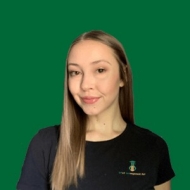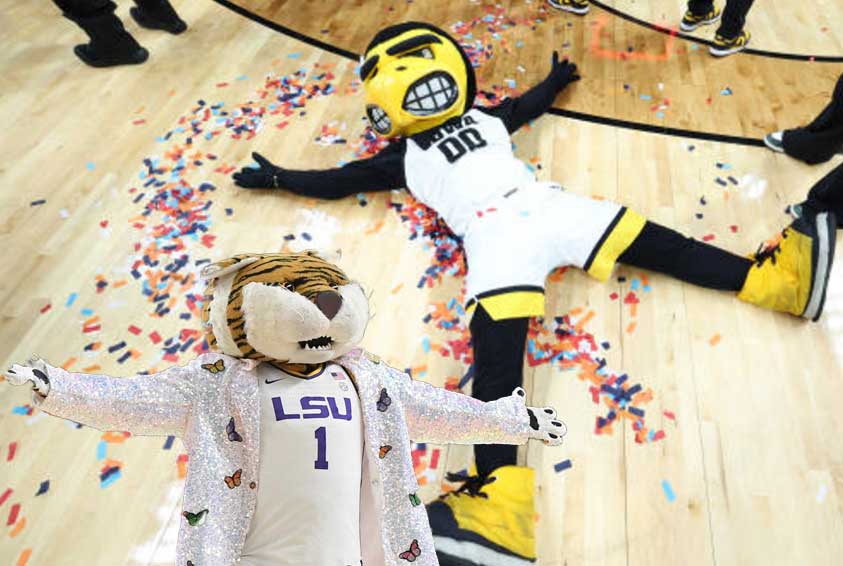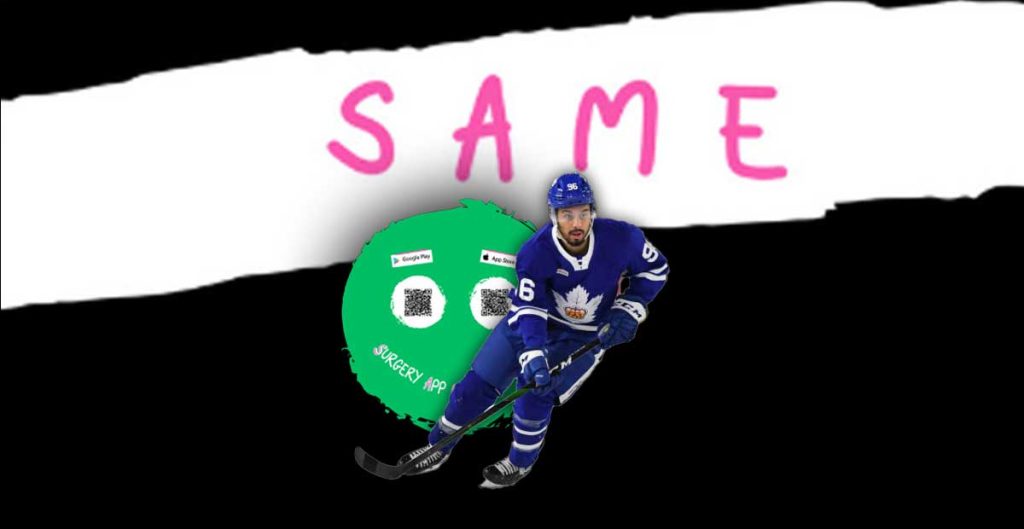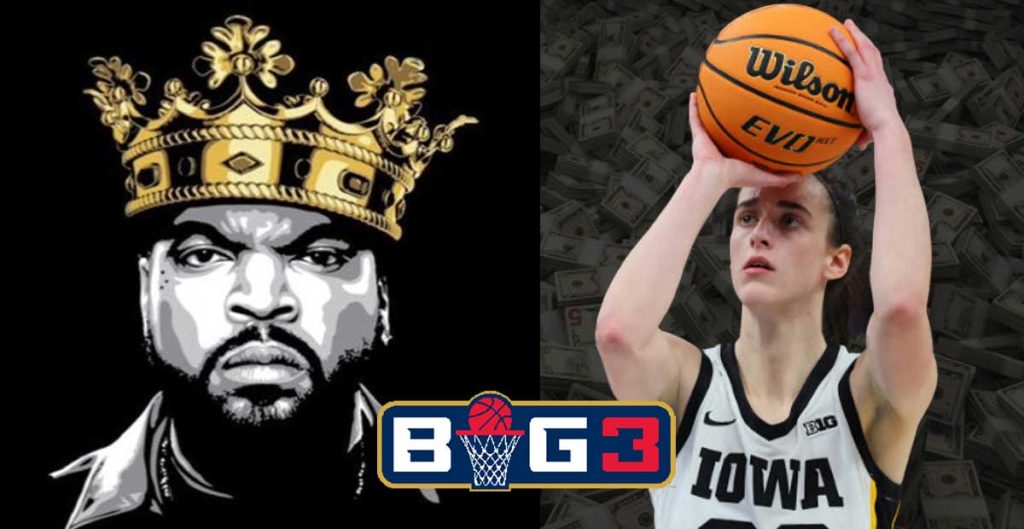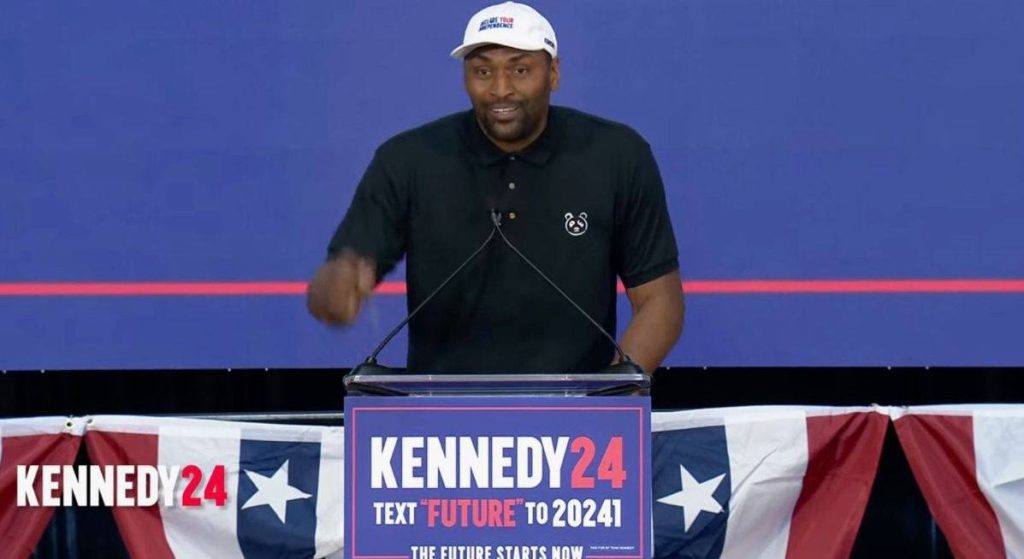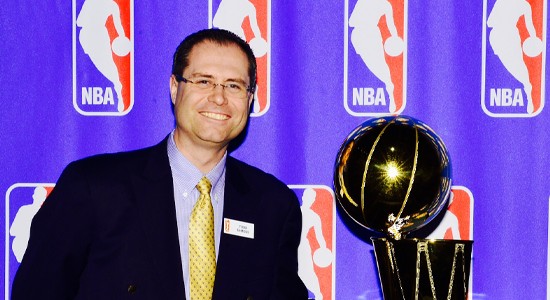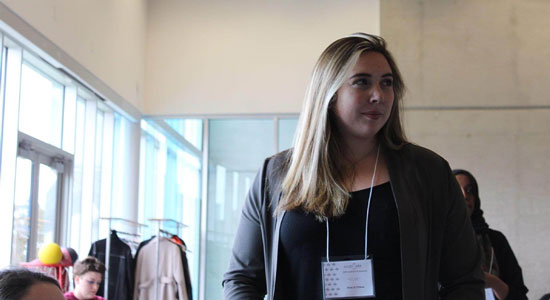
1 on 1 with Kelsey Fahie | Coordinator, Programs and Resources | Physical and Health Education Canada (PHE)

Most of my experiences in sport, whether they were work or volunteer experiences, came from utilizing the connections I have made with people within the industry through networking.
Kelsey Fahie
Coordinator, Programs and Resources
Physical and Health Education Canada (PHE)
Before we begin, give us a little update on how your job has changed since the World Health Organization (WHO) declared COVID-19 a global pandemic.
The work I normally do has changed due to the pandemic.
A lot of what I was working on was heavily influenced by the academic year and students being in school. Since schools have closed, many of my projects have been put on hold.
Thankfully, we created the PHE Home Learning Centre, wherein I have been able to create activities for teachers to give to parents to use with their children at home to facilitate home learning. This has kept me very busy during the pandemic.
I’m optimistic about the future of the sport industry because we know that life will return to a level of normalcy once a vaccine is created. People love and miss consuming sport, and I think that once we are able to return to doing our jobs in the way in which they were intended, we will have gained a new perspective and new tools to administer our work in creative and innovative ways.
The Latest
Jontay Porter Banned From The NBA For Life
Iowa vs LSU: A Landmark Moment in Women’s College Basketball
Former NHLer Josh Ho-Sang Now A Rapper
Metta World Peace Endorses RFK Jr. for President 2024
Tell us about your role as the Coordinator, Programs and Resources of the Physical and Health Education Canada (PHE) .
I consider myself to be a very lucky person because I get to go to work every day knowing that I am doing work that I love.
In my capacity as Coordinator, Programs and Resources, I work as a part of a team of passionate, hardworking people to create and manage new and existing physical and health education programs and resources. A lot of what we do helps to provide teachers across Canada with tools they can use within their school communities to teach their students about how to live healthy, active lives.
I love the innovative and collaborative nature of the work that gets done at PHE Canada. Creating and working to produce programs and resources to enhance the lives of Canadian youth through a holistic approach to wellness is something that I am very proud to be a part of.
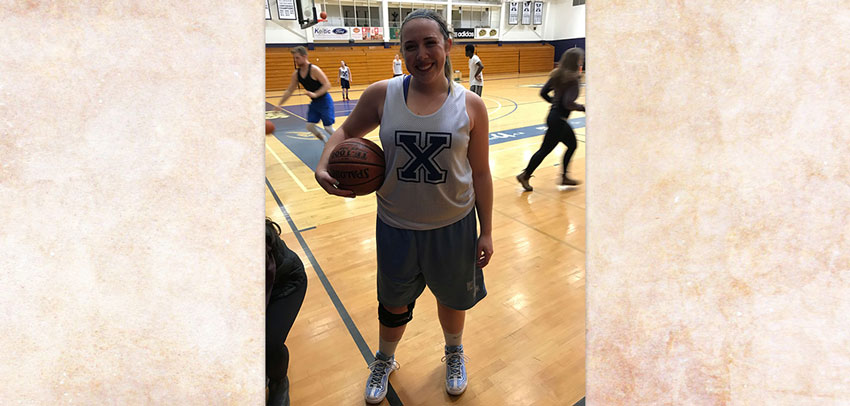
What does a typical day look like for you?
The thing I love most about my work is that each day is different. I am the type of person who likes to be kept on my toes and I work best in environments wherein each day brings forth new challenges and tasks.
If I were to summarize the type of work I do each day, it would include meetings with co-workers about current projects, collaborating with partners on new or existing initiatives, updating program content, overseeing program data collection, interreacting with various stakeholders, and managing new program registrations.
3Would you say your path to your current position was quite easy or rather challenging, and can you discuss why?
A lot of hard work went into creating the path to my current position.
I love to connect with people on social media, I use my professional Twitter account (@kelseyfahie) as a place where I can talk about the projects that I’m working on, thoughts that I have as they relate to sport and physical activity, and most importantly, I have used it as a networking tool.
In my third year of university, I created this account so that I could network and keep up to date with current news and events in the sports industry. I followed many provincial, national, and international sports organizations, and people who worked within the sports industry. From there, I connected with people and shared ideas with them.
It was over Twitter that I connected with someone who eventually started to work for PHE Canada.
He and I had mutual interests, and both were graduates of StFX University. We kept in touch throughout the years, and then during my master’s studies, I noticed he began working for PHE Canada. From there, I reached out to him and asked if we could meet in person.
We got together for coffee and I asked him if PHE Canada was looking to hire an intern for the summer, as I was in need of an internship position for my master’s degree. He invited me to see the organization and meet the team. From there, I was hired to work with them part-time while I completed my degree, then I worked for them as an intern, and then landed the position that I have with them today!
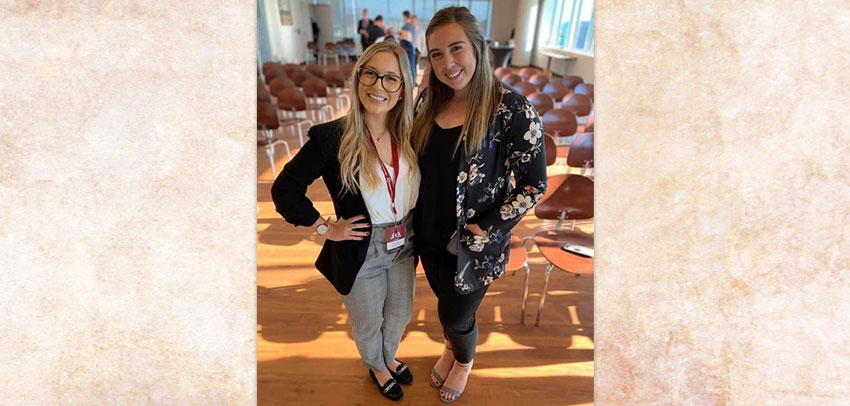
4What are some of the biggest challenges that PHE is facing currently? What measures is your organization taking to overcome those challenges?
By far the biggest challenge that PHE Canada is facing right now is trying to figure out how we can best support health and physical education teachers across the country during this pandemic.
Health and physical education are two very important subjects. Finding ways to best overcome some of the obstacles that teachers are facing -- trying to teach while students are all home -- is quite the endeavour. Similarly, parents are being asked to play the role of a teacher while students are at home, which is very hard for them to do because teaching is a profession that normally takes 6 years of university education just to get into.
In my opinion, it takes a very special person to be a teacher, so we want to be able to support them in any capacity that we can.
To try to overcome the challenge of teaching through a pandemic, PHE Canada has launched the "PHE Home Learning Centre".
This is a new initiative that offers quality physical and health education learning experiences through online educational delivery within a home setting, while also providing free access to practical and fun physical and health education activities.
These activities are divided into three themes: Physical education, healthy eating, and emotional well-being. Additionally, this initiative offers self-care strategies and professional development programs for teachers.
I encourage parents, guardians, teachers, and school administrators to check out this new initiative!
5I know you have a strong passion for health and physical education, so to be working for an organization like PHE Canada, what are the most rewarding and challenging aspects of your role as the Coordinator of Programs and Resources at PHE?
The most rewarding part about my job is knowing that the work I do every day positively impacts Canadian youth and teaches them how to lead healthy, active lives. I fell in love with sports and physical activity at a young age, and teaching kids about how to be confident and competent movers and thinkers is such an incredibly important and rewarding task.
The most challenging part about my job is not being able to be a part of the delivery of the programs and initiatives that I help to develop. When I worked for Athletics Nova Scotia, I was able to not only create programs and events, but I was there to administer them across the province. This enabled me to witness the positive impact that these programs and events were having on the kids and youth.
When you work for a national organization, oftentimes you don’t get the opportunity to see your programs being run, or to see your resources getting utilized. There have been some opportunities in the community delivering PHE Canada initiatives, which has been wonderful. I just miss being able to not only create the programs and resources but to deliver them to kids and youth as well. To me, there is no better feeling than seeing a kid smile and be physically active while participating in an initiative that you helped to create.
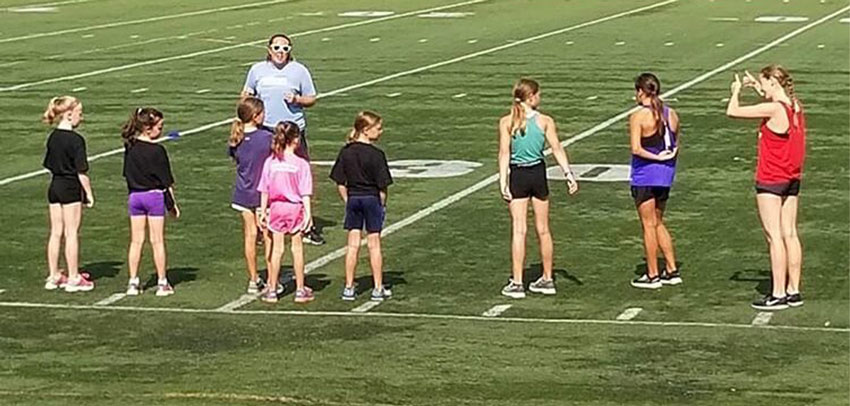
6You've loved sport since a very young age. When was the point you realized that you were meant to do this career? Take us through that realization.
When I was in high school, I was a multi-sport athlete and played four varsity sports. I was good at each one, but I didn’t particularly stand out in a single one, so when I went to university, I didn’t play varsity sports.
In high school, being an athlete was a part of my identity, so to start a new chapter of my life while also losing a part of myself was extremely hard. I attended university where I was enrolled in a Human Kinetics program.
I knew I loved sport and physical activity but was still unsure of what career path I would make out of it.
In the beginning, I went through a bit of an identity loss, until I realized that there were other ways that I could continue to be a part of sport without having to be a varsity athlete. This was a turning point for me.
After that, I immersed myself in all things to do with sport and recreation management at the school.
I joined the Human Kinetics Society and was the Co-President in my final year of studies, I worked for StFX Recreation as the Student Director of Intramural Programming, and I coached various youth sports programs within the community: from basketball to track and field to multi-sport to Special Olympics.
Having these roles, as well as summer student positions each year with Athletics Nova Scotia, allowed me to cultivate a deep love for sport administration.
This enticed me to continue my education, and I applied for a master’s degree in Human Kinetics with a concentration in Sport Management.
7Having recently graduated with your Masters in Human Kinetics, why was it important for you to further your education?
I have always loved going to school and learning. Some of my favourite courses I took during my undergraduate degree included:
- Gender and Sport and Physical Activity
- Sociology of Sport
- Modern Olympic Games
- Adaptive Physical Education
- Historical Perspectives of Sport and Recreation in Canada
- Ethics of Sport
- Sport and Society
Knowing that I loved the humanities of sport, I believed that working for a sports organization would be a great way to incorporate some of my educational interests into my vocational life. My undergraduate degree gave me a background in kinesiology, but I knew that I needed to pair that with a degree that would teach me about how to work for a sports organization, and all that came with it.
Through my master's degree, I learned about sport event management, sports marketing, finance, organizational theory and behaviour, and so much more. I believe my degrees complement one another very well and have helped to set me up for a successful career within the Canadian sports industry. Who knows, maybe someday I’ll even go for my PhD!
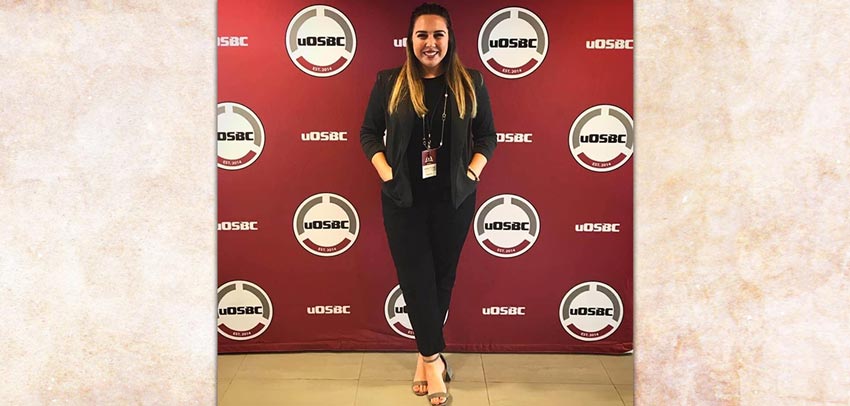
[get_current_post_author_pic_and_name]
Kelsey's dedication, drive and passion has always impressed me, and I count myself lucky to have had the chance to interview her. The advice I have taken and hope other aspiring industry professionals take from my interview with Kelsey is “network, network, network!” She is probably the best networker I know, and she explains how networking brought her to where she is today, doing what she loves. Networking can lead you to your first gig in the sports industry and eventually, even your dream job! So, make connections! You never know who you might meet and how they can help you.

